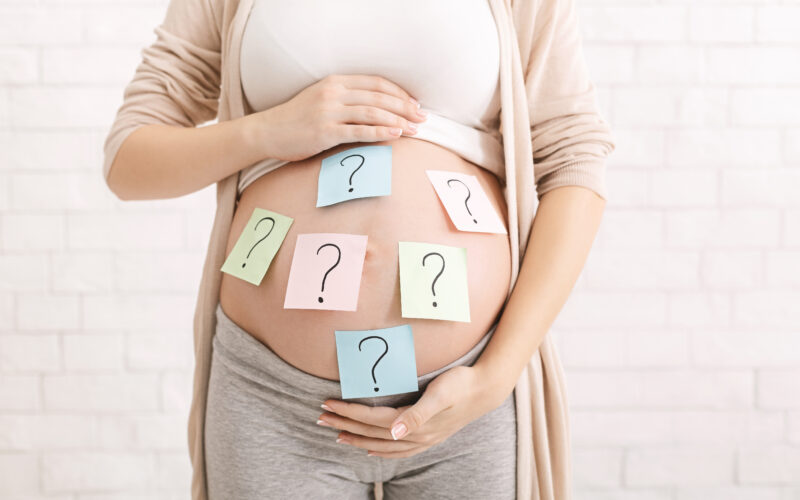The Covid-19 pandemic is life-altering enough for just about everyone. People are working from home, kids are out of school, city wide curfews have been placed, and many restaurants and bars have shut down or considerably reduced their services. But there is one population who is experiencing uncertainty on a whole new level: those who are expecting or taking care of babies. It is especially challenging to be pregnant and/or breastfeeding in times like these.
In high population density areas, like New York City, there is a demand and supply issue on any given day for birthing moms. Parents have to pay a premium price for a private postpartum room and partners may not be able to stay with them overnight. On a good day. Throw in this insane act of nature, and we now have hospitals sending emails to expectant parents urging them to either stay home for as long as possible in labor, or to consider a “birth in place.”
Pregnant in the time of the Coronavirus
There are still so many unknowns about COVID-19. What we do know is that pregnant women have compromised immune systems. According to the CDC, “pregnant women experience changes in their bodies that may increase their risk of some infections. With viruses from the same family as COVID-19, and other viral respiratory infections, such as influenza, pregnant women have had a higher risk of developing severe illness.”
While we don’t have any hard evidence yet that pregnant women are more susceptible to contracting COVID-19 specifically, we do know that they are more likely to have complications if they do become ill. In addition to taking hygienic precautions themselves, pregnant women should encourage the same for anyone else in their household. You know the drill: hand washing, social distancing, covering your cough, and so on.
It is also recommended that pregnant women have appropriate amounts of prenatal vitamins, diapers, wipes, and any other supplies at home, to limit them from making unnecessary trips to stores now or in the postpartum period. If you are pregnant and find yourself in need of supplies, try using an online order or local-delivery service, or ask someone in your community for help, rather than going to the store yourself.
Getting ready for childbirth during a pandemic
How drastically you should change your birth plan depends on how far along you are in your pregnancy. If you are past 36 weeks, I’m sure you’ve already contacted your provider to ask what their plans are, in the face of COVID-19 affecting their hospitals. (And if you haven’t, please close this window and do so immediately!)
If you live in a high density population area, you can consider temporarily moving your location to give birth in a hospital that is less crowded. If you are still early on in your pregnancy and low risk, you may consider midwifery care so that you can avoid doctor’s offices all together for your prenatal care. Lastly, if you haven’t already, you can take a high-quality childbirth education class online.
Preparing for the worst, even if you won’t need it
The CDC recommends having a “just in case birth kit.” The American College of Nurse Midwives has a great tear sheet here on disaster preparedness while preparing to give birth. This is not to invoke alarm or fear, or to suggest that you will need to give birth unassisted at home. It is just to keep people informed on how they can best prepare in the rare case that they have no other option. Like when a flight attendant tells you where the baby-sized life preserver is on the plane.
Can COVID-19 be spread from a pregnant mom to her fetus?
According to the CDC, we don’t know if COVID-19 can be passed on from mom to fetus, or if it does, if it increases chances of health complications after birth. We also don’t know yet if it can be transmitted through breast milk. At this point, there are far more questions than answers.
Should postpartum moms keep breastfeeding?
We know that breast milk often provides antibodies to the infant, protecting them against illnesses. The CDC states that “in limited studies on women with COVID-19 and another coronavirus infection, . . . the virus has not been detected in breast milk.” But studies are limited and in their early days. If a breastfeeding mom is not showing any signs of illness, it is recommended that she continue nursing her baby normally.
If you find yourself needing breastfeeding support during this pandemic, many local La Leche League chapters are offering online meetings, and leaders are always available via phone or email for practical and emotional support. If you need more clinical care, many local International Board Certified Lactation Consultants (IBCLCs) are offering telemedicine. Don’t wait to reach out!
Outside of the immediate postpartum setting, the CDC recommends that a “ mother with flu continue breastfeeding or feeding expressed breast milk to her infant while taking precautions to avoid spreading the virus to her infant.”
If you are using a breast pump, you should wash hands before and after handling pump parts, as well as wash the parts themselves with warm water and soap. If a mom is not planning on breastfeeding, it is recommended to purchase pre-made formula simply to cut back on germ transmission in the making of powdered formulas.
Planning for well-baby visits
Thinking ahead to after the birth of your baby, ask your pediatrician how they are handling well-baby visits during the COVID-19 pandemic. Are they able to do telemedicine? How are they handling vaccines? Do they recommend having any specific over-the-counter medicines at the ready should you need them?
All of this information aside, we know that expecting and postpartum mothers have a lot going on right now. This is your friendly reminder to take very, very good care of yourself. We will get through this, we just have to make smart decisions and stay informed. The CDC and WHO are the gold standard for getting information, as are your healthcare providers. Doulas can also be immensely helpful in holding your hand emotionally through this roller coaster. Rely as much as you can on virtual visits, and emotional support however you can get it. And most importantly—don’t forget to breathe!











